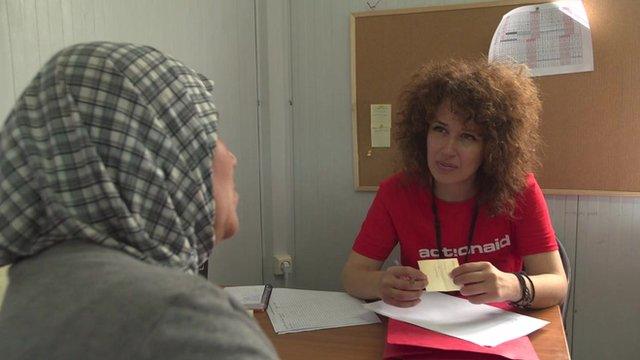Asylum seekers' anger catches fire in Lesbos
- Published
Many of the migrants who fled the fire have now returned to the camp
Through the barbed wire fence, the signs are there - tips of blackened trees and patches of scorched earth where a fire engulfed large parts of Moria, the biggest migrant camp on the Greek island of Lesbos.
By Tuesday, 12 hours after the blaze, damaged tents had already been cleared away and most of the residents of this sprawling facility had returned after escaping the flames and sleeping out in the bush.
The metaphor of the inferno was clear. For months, anger has been building in Moria as asylum applications were delayed and migrants were held in an overcrowded camp. Moria has capacity for 3,500 - but about 5,000 live here in stretched facilities.
"Fighting broke out between blacks and Afghans," says Kingsley, a Ghanaian man whom we spoke to through the fence, the authorities not allowing us in. "They were throwing stones at each other and there was an argument over food. The fire caused a lot of damage and my luggage was destroyed."
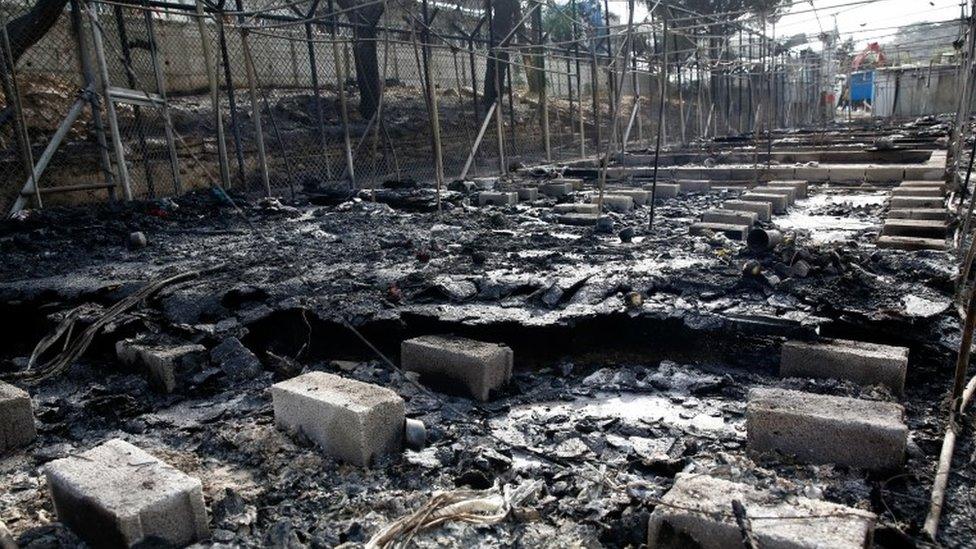
Some of the tents were burned to the ground
Does he have hopes of staying in Europe, I ask?
"We've been given papers that say we'll probably have to return to Turkey," he replied. "But I have hope in God."
The EU deal struck to deport failed asylum seekers to Turkey and then back to their country of origin significantly cut the numbers of new arrivals here. But the quid pro quo was supposed to be visa-free travel for Turks travelling to the EU's Schengen zone in return.
It hasn't happened, as Brussels says Turkey needs to amend its broad anti-terror legislation. Ankara has refused and the deal is foundering, sparking fears that new arrivals here will again soar.
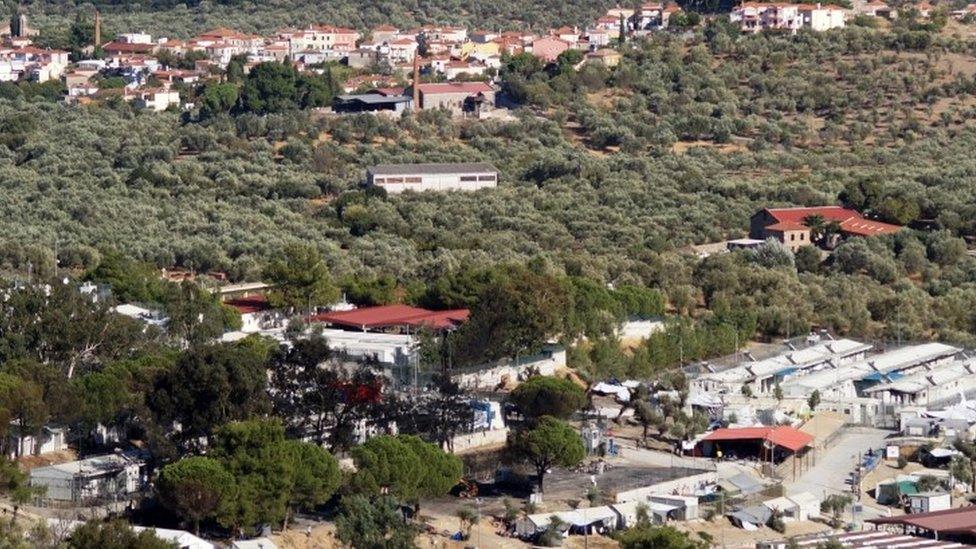
The fire-damaged camp (foreground) is surrounded by woodland and not far from the village of Moria
In the wider Lesbos community, there's also growing anger over the continued migrant presence. The neo-Nazi Golden Dawn party has stoked it, organising protests and exploiting the tension. It could prompt more flare-ups here.
With the burnt tents removed and new ones brought in, Moria has an air of permanence.
There are holes in the fences - the residents sometimes wander out, through the litter-strewn forest around it.
But there's little place to go. The doors of the Balkans remain closed and the desperate are being kept here until Europe decides what to do with them.
- Published20 September 2016
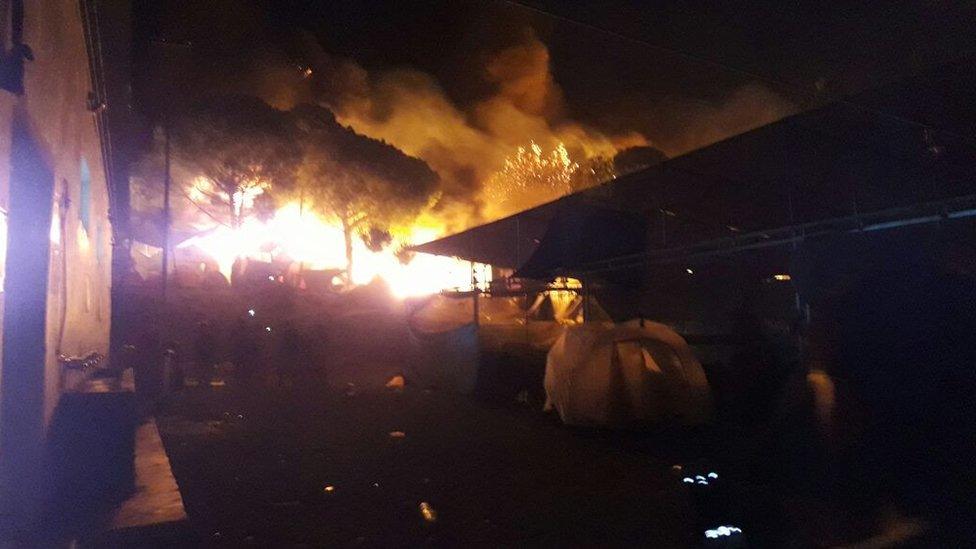
- Published17 August 2016
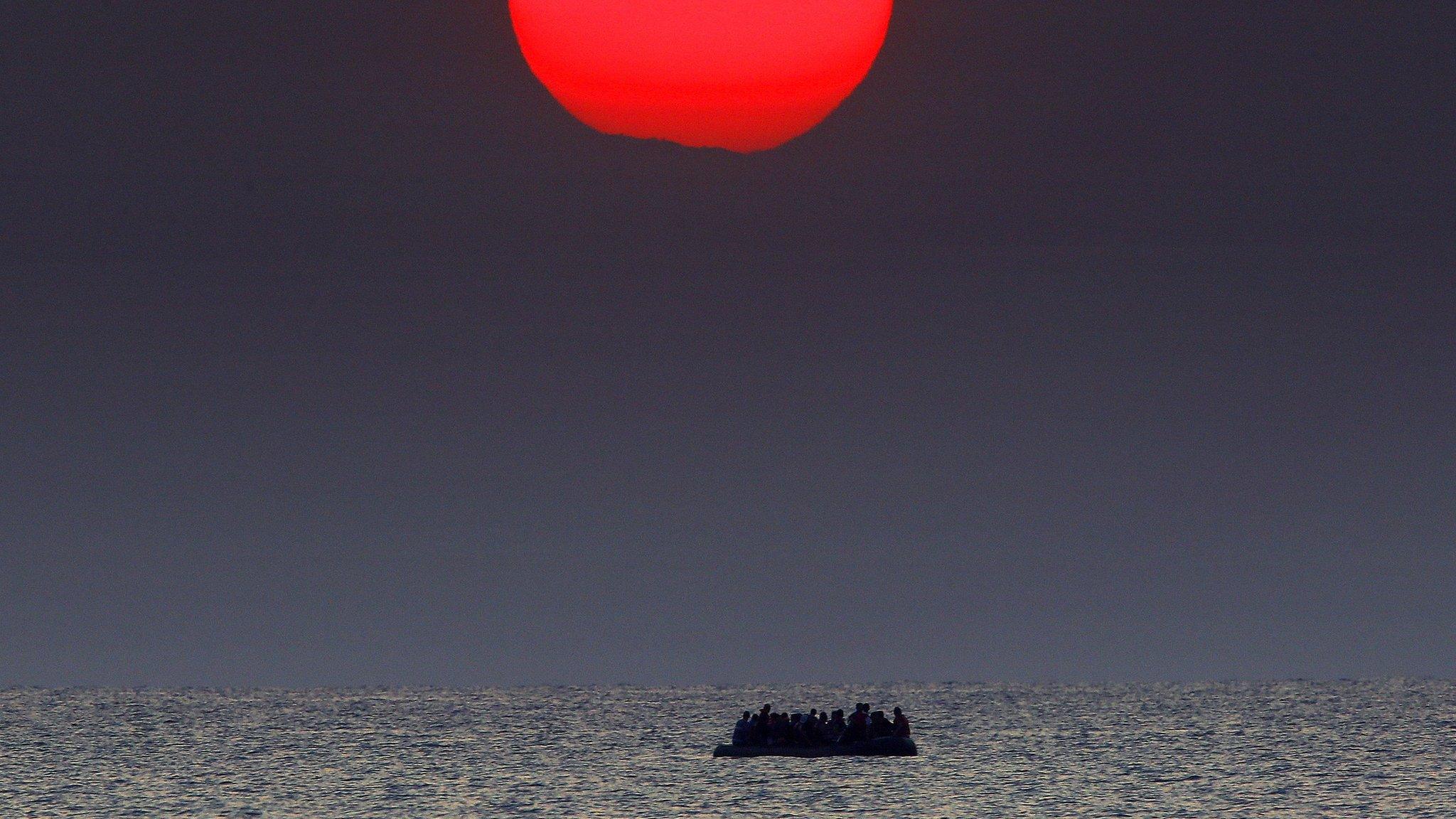
- Published16 May 2016
